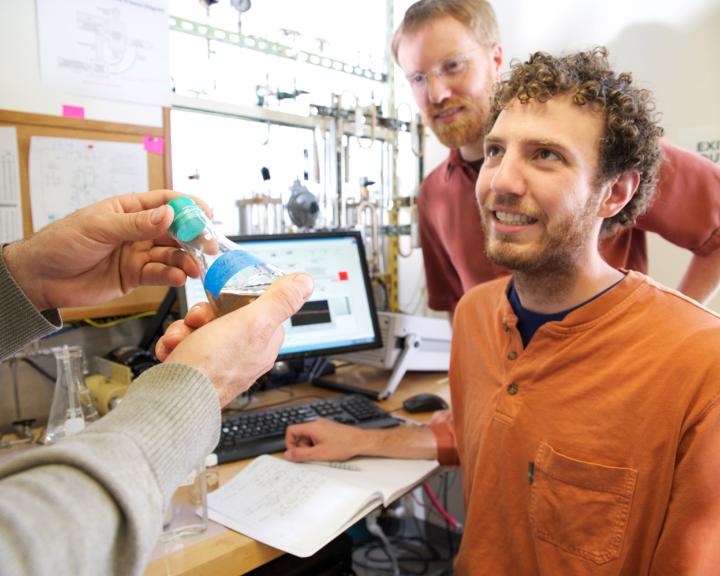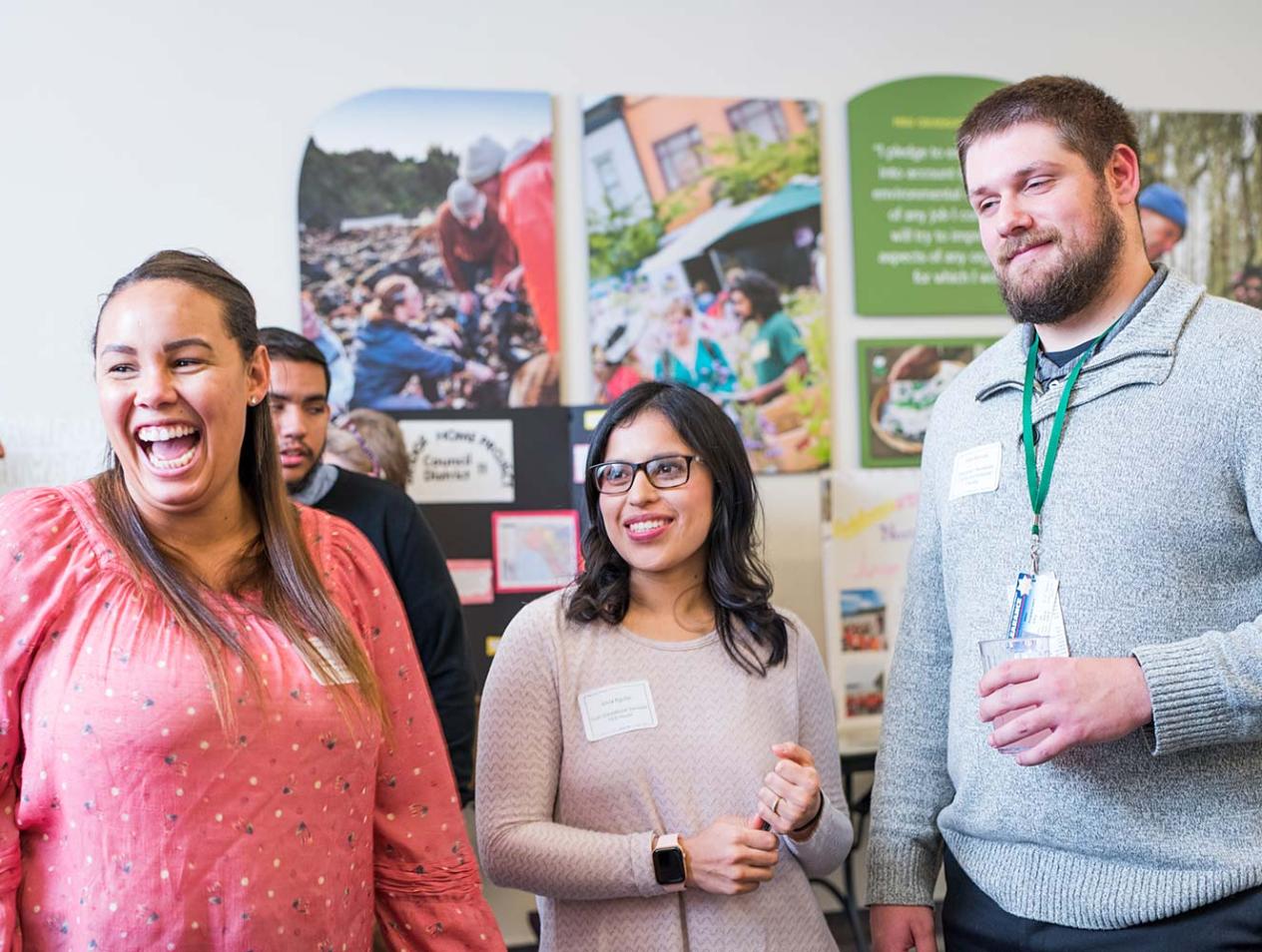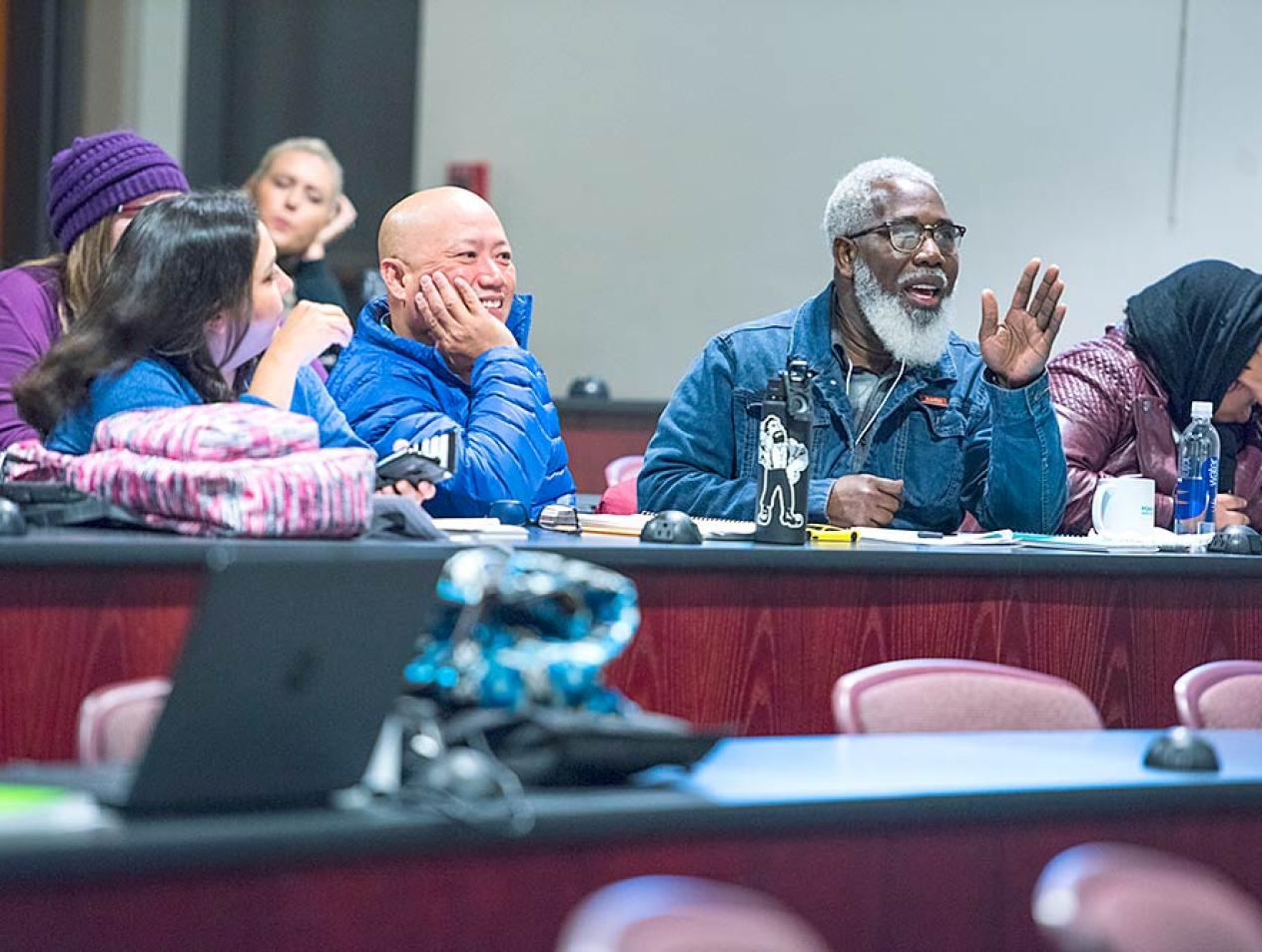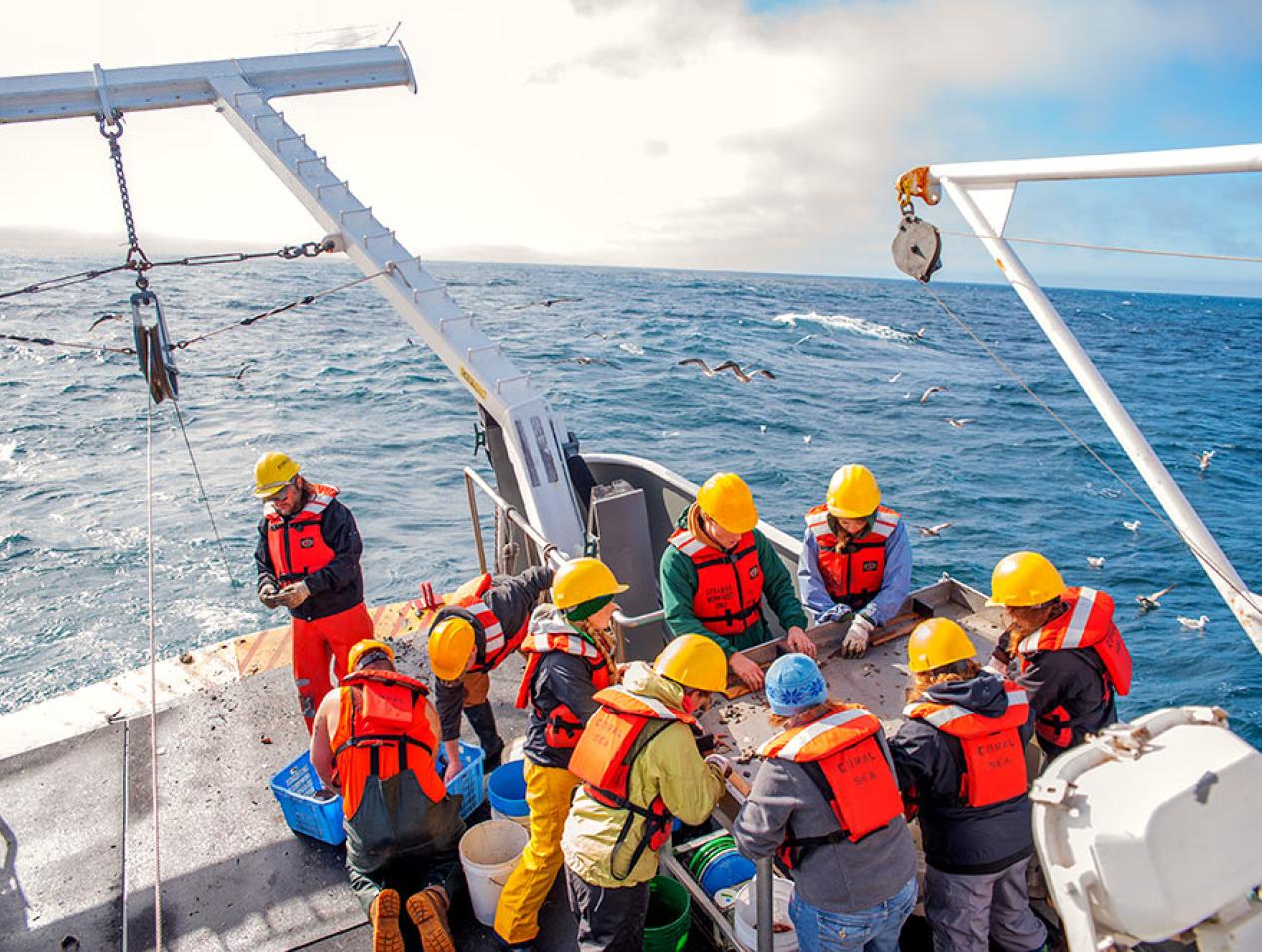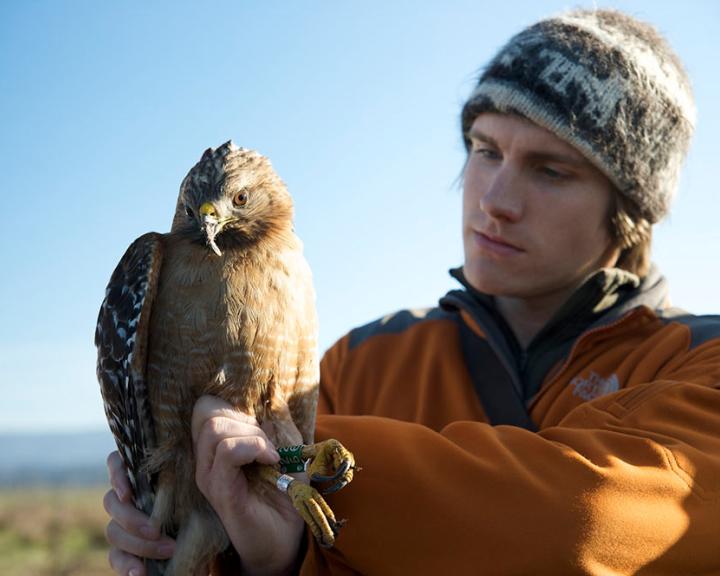Breadcrumb
Public Sociology M.A.
Public Sociology takes sociology into the real world.
The master’s program in public sociology, focuses on social justice and environmental sustainability, while fostering a network of students, faculty, staff, alumni and community members who are committed to social change. Students are taught to translate their work for the non-academic world and make an impact on the broader community. Our students focus on both teaching and practicing sociology, while developing capacities to build socially-just communities. Our program is a good fit for students who would like to pursue either a Ph.D. to either teach or conduct research in higher education, or to work in research institutions, or a career without needing a Ph.D. Such careers include leading a non-profit, managing a government agency, or teaching at a community college.
Why this Program
The master’s in Public Sociology provides students with multiple skills—including qualitative and quantitative research skills, how to conduct program evaluations, and how to effectively teach.
Working professionals can get their degree part time, or full time, taking evening classes.
Sociology graduates offer a unique understanding of the social world and possible social solutions to major social issues, as well as the day-to-day issues faced by every organization.
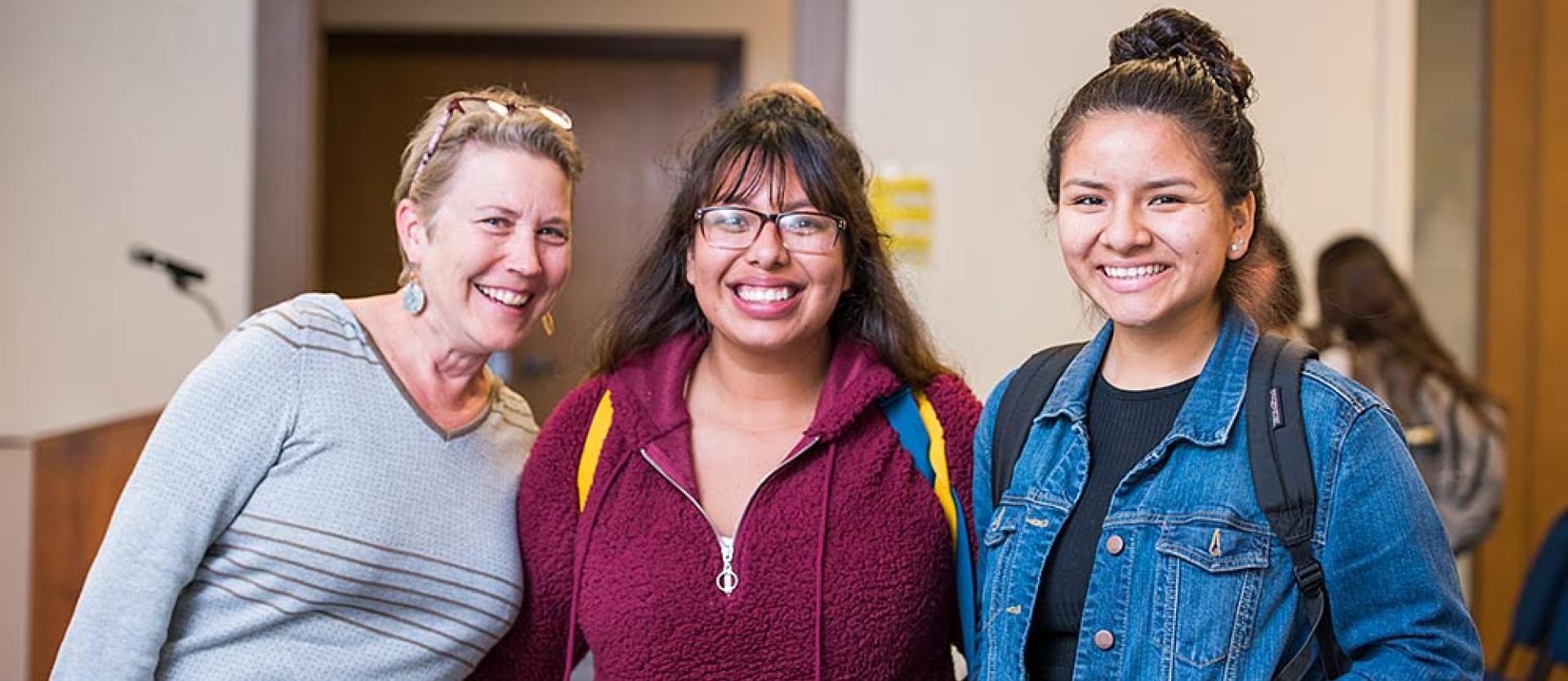
Academics & Options
Graduate Coordinator: Mary.Virnoche@humboldt.edu
College of Arts, Humanities, & Social Sciences (CAHSS) Recruitment Coordinator: cahss.grad@humboldt.edu
Program Emphases
Students learn cutting-edge pedagogical practices, and receive both hands-on experience and close mentorship. This is great preparation for teaching at a community college, facilitating and leading groups, designing educational materials, or securing a teaching assistantship in a PhD program.
Students develop into well-trained and valuable applied sociologists. They build their skills through classes, a 240-hour placement with a community partner, paid research opportunities, and their thesis/capstone work.
Combined Bachelor’s and Master’s Pathway
Earn your B.A and M.A. in just five years (three years for transfer students) with our Blended Bachelor’s and Master’s Program
You can complete either a Sociology B.A. or a Criminology & Justice Studies B.A, then continue on to receive a Public Sociology M.A.
Did You Know?
There is much you can do as a Sociology major to plan for your future. You can join professional associations, and attend, and/or present papers at relevant conferences like Pacific Sociological Association, American Sociological Association, and the Critical Criminology Association, among many others.
Graduate students are actively involved in faculty research and social action projects, many of which are linked with community organizations and government agencies.
Our program is structured to move students through the program in a timely manner. In fact, the majority of our students finish their degrees within two years.
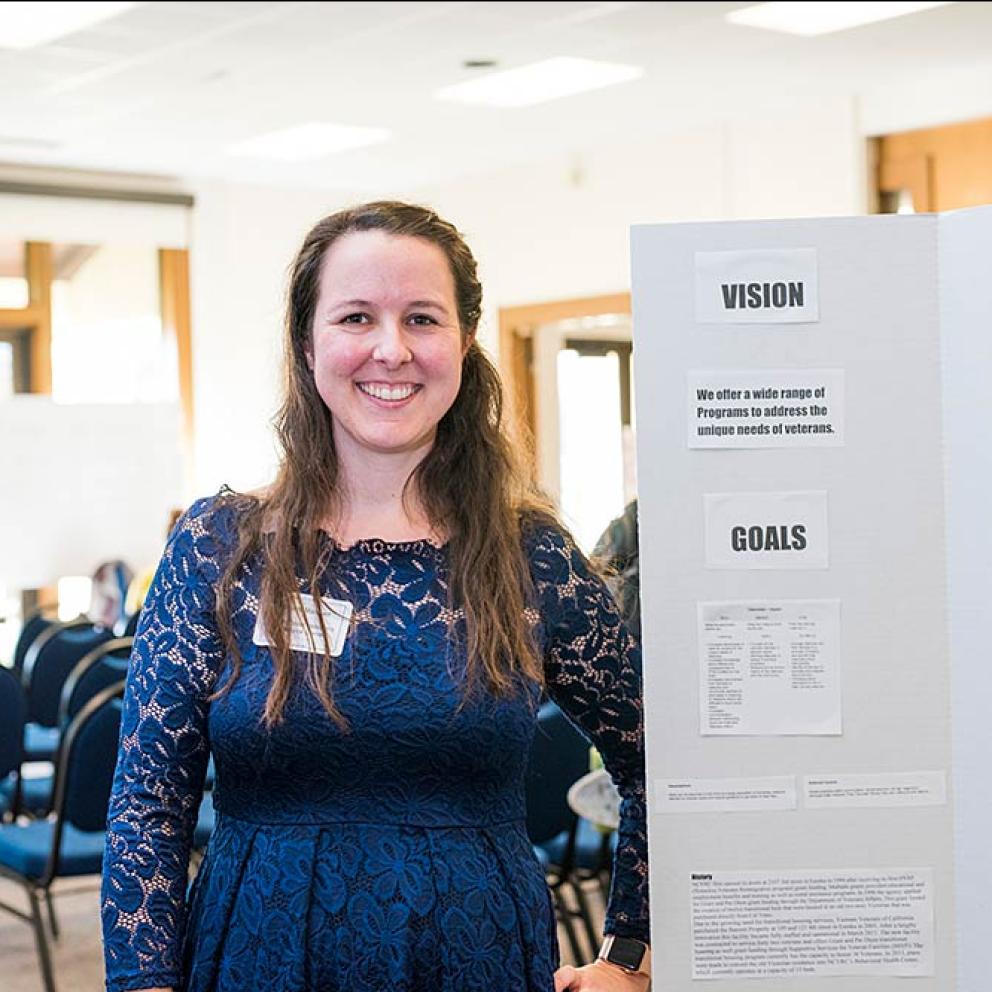
Careers
Former Humboldt Public Sociology graduates have gone on to work, and take leadership, in the non-profit sector, activist organizations and social service agencies, work in higher education, teach at a community college, pursue a Ph.D., and much more!
- Advertising Quantitative/Qualitative Researcher
- Data Analyst
- Financial Specialist – Social and Health Services
- Food Policy Researcher and Advocate
- Health Policy Researcher
- Harm Reduction Specialist
- Recruiter/Program Analyst – Housing Authority
- City Planner
- Public Policy Analyst/Researcher
- Community College Instructor
- University Instructor/Professor
Breadcrumb
Social Work, M.S.W.
The Master of Social Work program is an advanced generalist with an emphasis on working in rural and Indigenous communities. The program teaches students how to achieve a disciplined, compassionate presence to a caring, and ethical practice. The program prepares students for advanced generalist practice which emphasizes multi-system, multi-level approaches in which practitioners and clients work in collaboration to enhance the functioning and resilience within systems through building on existing strength.
Why this Program
Our program’s emphasis is on working with Indigenous and rural communities and coursework designed to decolonize mainstream social work practice.
MSW students are matched with skilled social work practitioners for required community placements, offering mentorship as well as integration of theory and practice.
Our distance learning program was created in partnership with county and tribal social service providers in far northern California, with the goal of developing a workforce prepared to serve rural and tribal communities in the region. Courses are designed to support people who are rooted in their communities.

Did You Know?
Students develop a framework for practice guided by personal and professional values and ethics. Cultural humility, compassion, partnership, empowerment, non-expert relational paradigms, critical reflection, and social action for justice are the concepts that form the foundation for learning and developing social work practice at Cal Poly Humboldt.
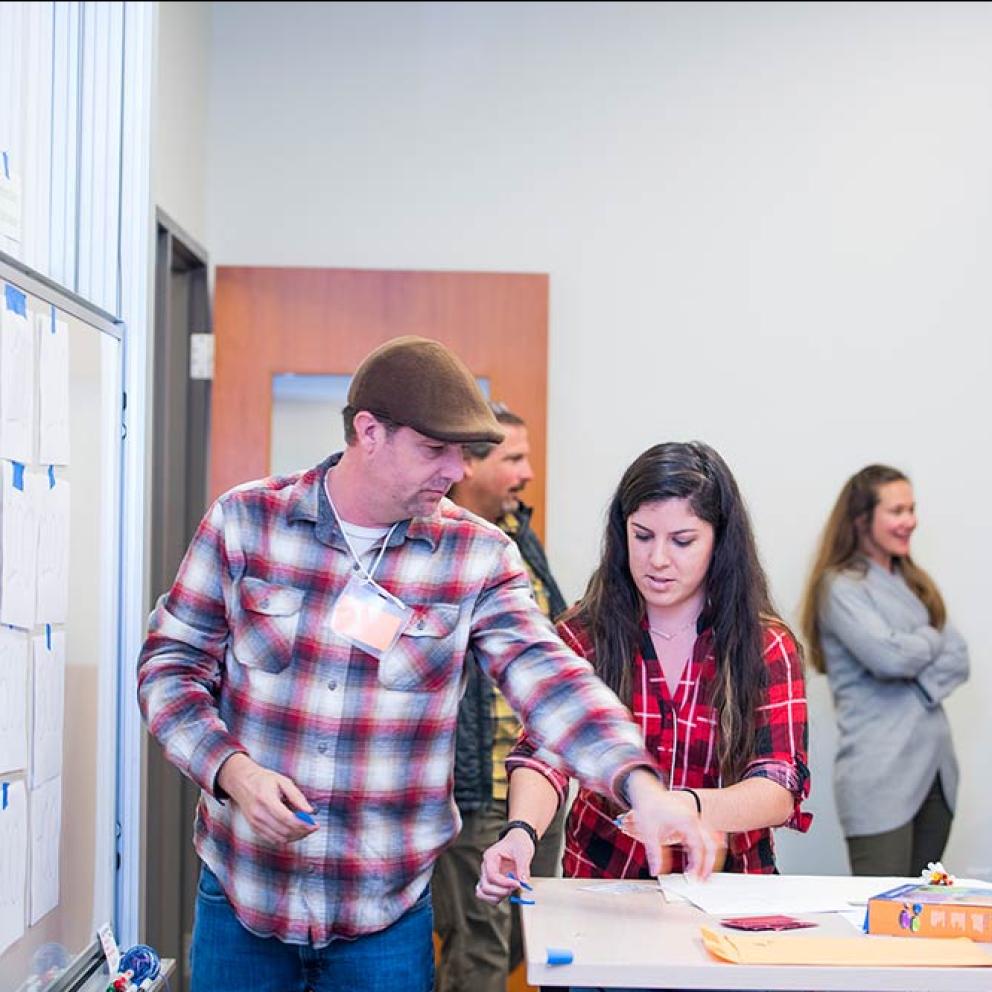
Careers
Whether you want to advance in your current career, make a transition, or add a degree to amplify your voice and better serve the community you call home, our accessible program has an option to meet your needs.
- Addictions
- Adoptions
- Agency Administration
- Child Welfare
- Clinical Settings
- Community Organizing
- Corrections
- Domestic Violence
- Family Planning
- Foster Care
- Gerontology
- Group Homes
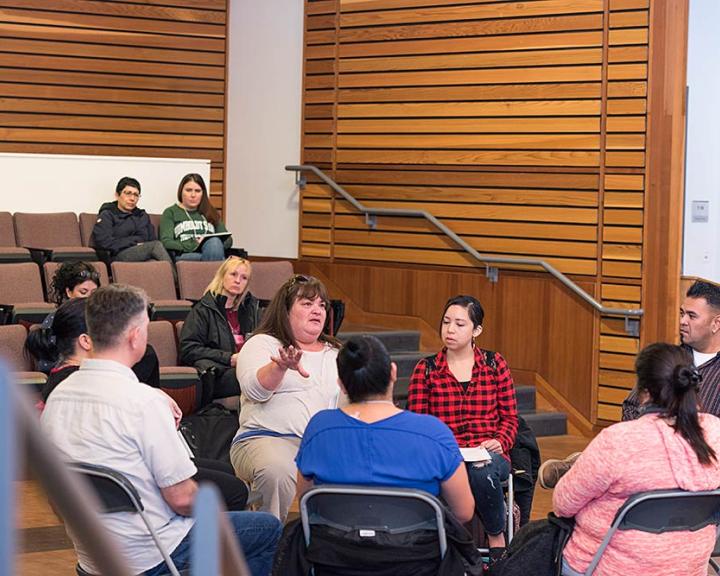
Breadcrumb
Environment & Community, M.A.
Our program focuses on the diverse relationships between environment and community using interdisciplinary perspectives.
We find just and sustainable solutions to complex social and environmental challenges, grounded in the knowledge that racial justice, settler colonialism, and environmental problems are deeply intertwined.
We seek to foreground intersectional and decolonizing understandings of power/privilege and identity in environment and community interrelationships.
Why This Program
We embrace critical interdisciplinarity in the context of environment and community relations.
We advance just sustainability and environmental justice using frameworks that acknowledge the power-laden connections between race, other axes of social difference, and environment.
We learn with and from our students, teaching advocacy, supporting their interests, and mentoring them to be effective leaders.
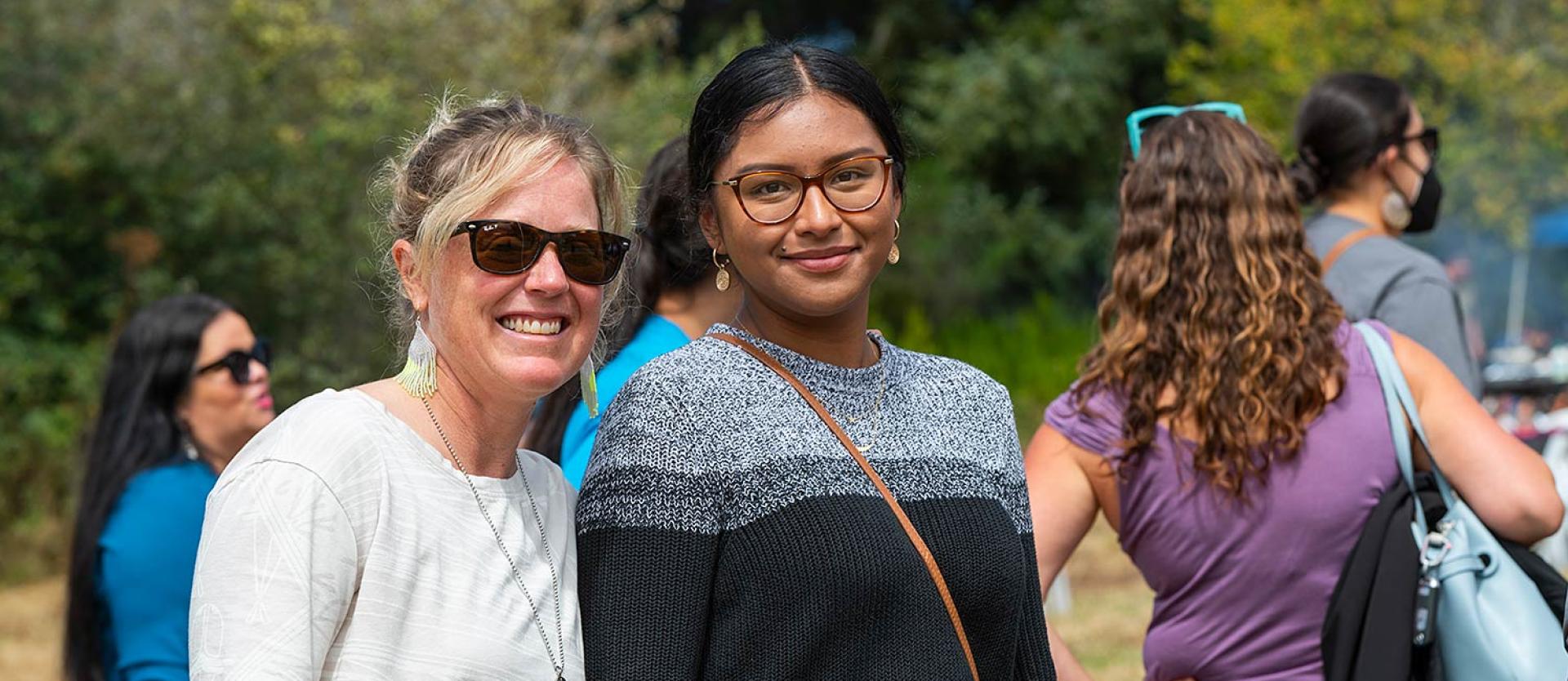
Did You Know
E&C graduate students have a broad array of interdisciplinary interests, connected by a common commitment to work towards sustainable and just environment and community relationships.
Graduates have a strong foundation in social science theory and research, the skills for a career or higher degree in a number of fields, and work for nonprofit, government, and educational organizations.
We offer a Dual Degree Pathway. You can earn both a bachelor’s and a master’s degree in five years.
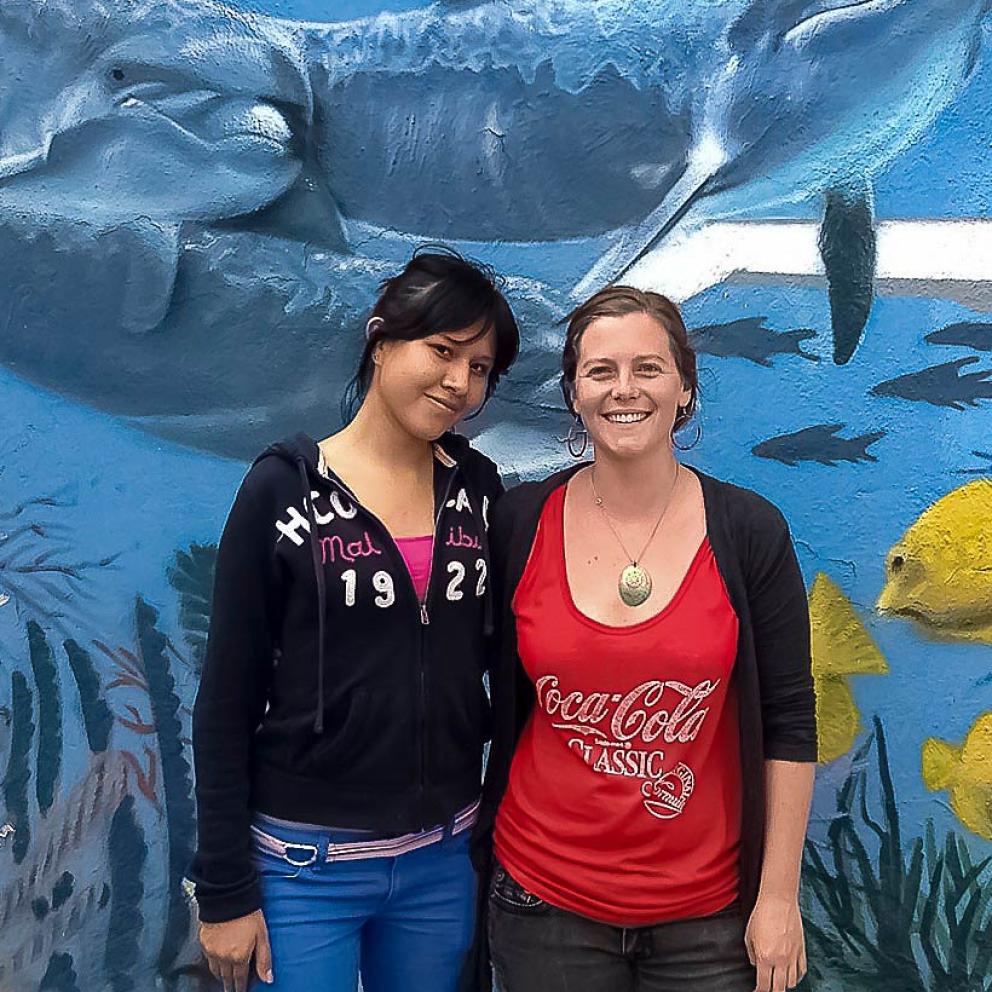
Careers
Many graduates work for nongovernmental organizations, while others work for government agencies, in education, and in the private sector. Some pursue law or Ph.D. degrees. All our graduates have a strong foundation in social science theory and research, and the skills for a career or higher degree in a number of fields.
- Conservation Agent
- Environment Program Director
- Environmental Specialist
- Outreach Coordinator
- Paralegal
- Senior Planner
- Transportation Planner
- Water Conservation Specialist
- Development Director
- Development Writer
- Director of Programs
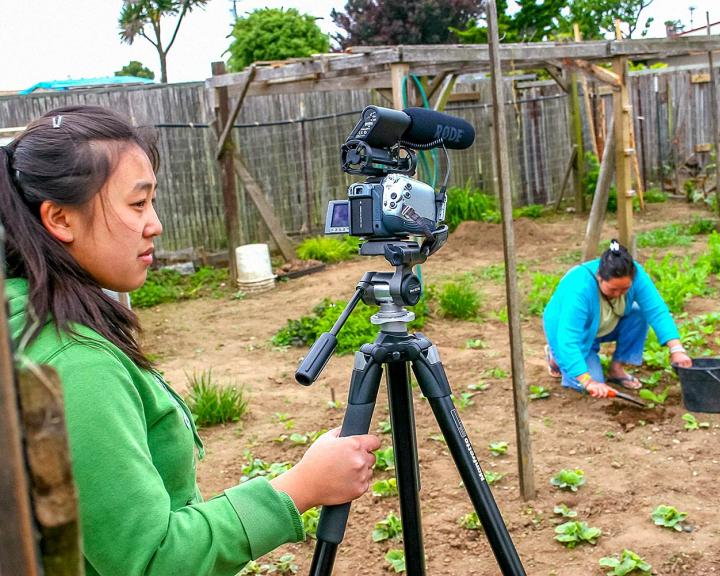
Breadcrumb
Natural Resources, M.S.
The graduate program in Natural Resources is designed to provide students with the knowledge and experience necessary to address natural resource problems and to carry out scientific investigations including design, implementation, and evaluation of research in their specific area of study. While the program is designed to provide an in-depth understanding of the student's area of emphasis, it’s also intended to develop an appreciation for the interdisciplinary character of natural resource problems.
Why This Program
Research
Science and Natural Resources graduate students conduct original scientific investigations under the guidance of their major advisor.
Fieldwork
Mountains and wetlands. Forests and rivers. Beaches and bays. They’re all nearby, and they’re all used as living laboratories.
Personal Attention
It’s the difference between sitting through class and being part of it. Feel challenged and inspired by faculty who will support your success.
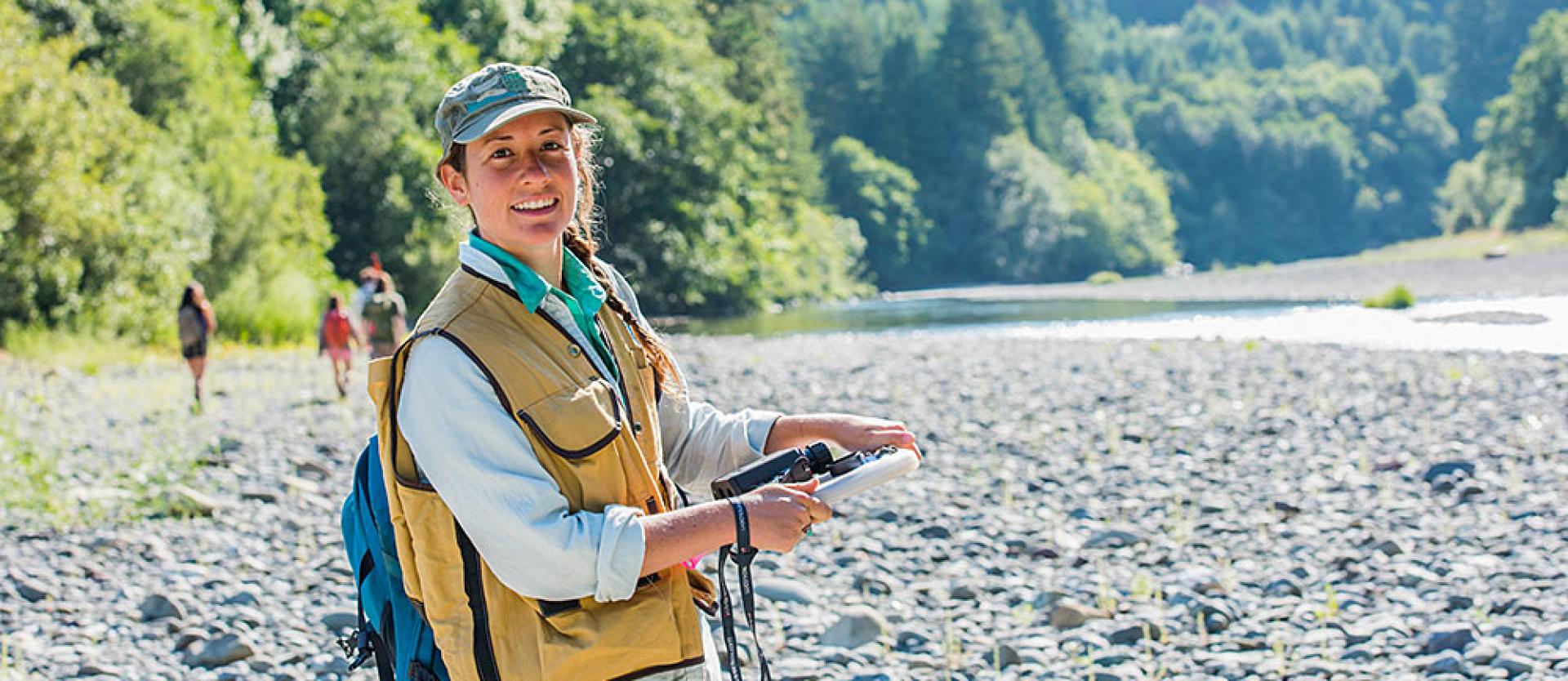
Concentrations
Environmental Science & Management (ESM) graduate studies are oriented toward environmental analyses and land use planning, ecological restoration, human dimensions of natural resources, and geospatial science.
The Fisheries program is designed primarily to produce graduates who can assess, manage, and conserve fish habitats, populations, and commercial and recreational fisheries. The program is broad enough to allow students to prepare themselves for work in additional areas such as water pollution ecology, fish population dynamics, and fish culture.
Graduate students in Forests, Fire, Watershed & Range are focused on a wide variety of topics including forest ecology, tree physiology, conservation biology, forest growth, and administration of forest land for ecosystem management. Fire focuses on wildland fire processes and management. Watershed focuses on watershed processes and the interactions between geophysical and biological factors expressed in bounded drainages. The interplay between watershed processes and management of other natural resources is integral. Range focuses on the management of rangeland ecosystems.
Forests, Fire, Watershed & Range Concentration Catalog Page
Forestry Graduate Faculty
For more information, please contact a faculty member in the Natural Resources Graduate Program. It is most helpful to contact faculty members whose research and academic interests align with yours.
Wildlife emphasizes research on wildlife species, behavior, and habitat requirements within the complex ecological interactions that govern the outcome of various land use practices. Wildlife managers should be able to maintain sustained yields of game animals, to minimize wildlife depredation, and to reverse conditions threatening species with extinction.
Did You Know
The campus fish hatchery has a recirculating freshwater system with incubators, troughs, fiberglass circular tanks, concrete circular tanks, and raceways.
One of the best-equipped university fire research facilities in the United States, Humboldt’s fire lab has a fire platform, ventilation hood, and a thermal imaging camera used in the lab and during wildland fires.
Just minutes from campus, the lab for marine education and research includes a system that recirculates seawater, a remotely operated underwater vehicle, a wet laboratory for rearing marine invertebrates and fishes, and a culture room for larval invertebrates and algae.
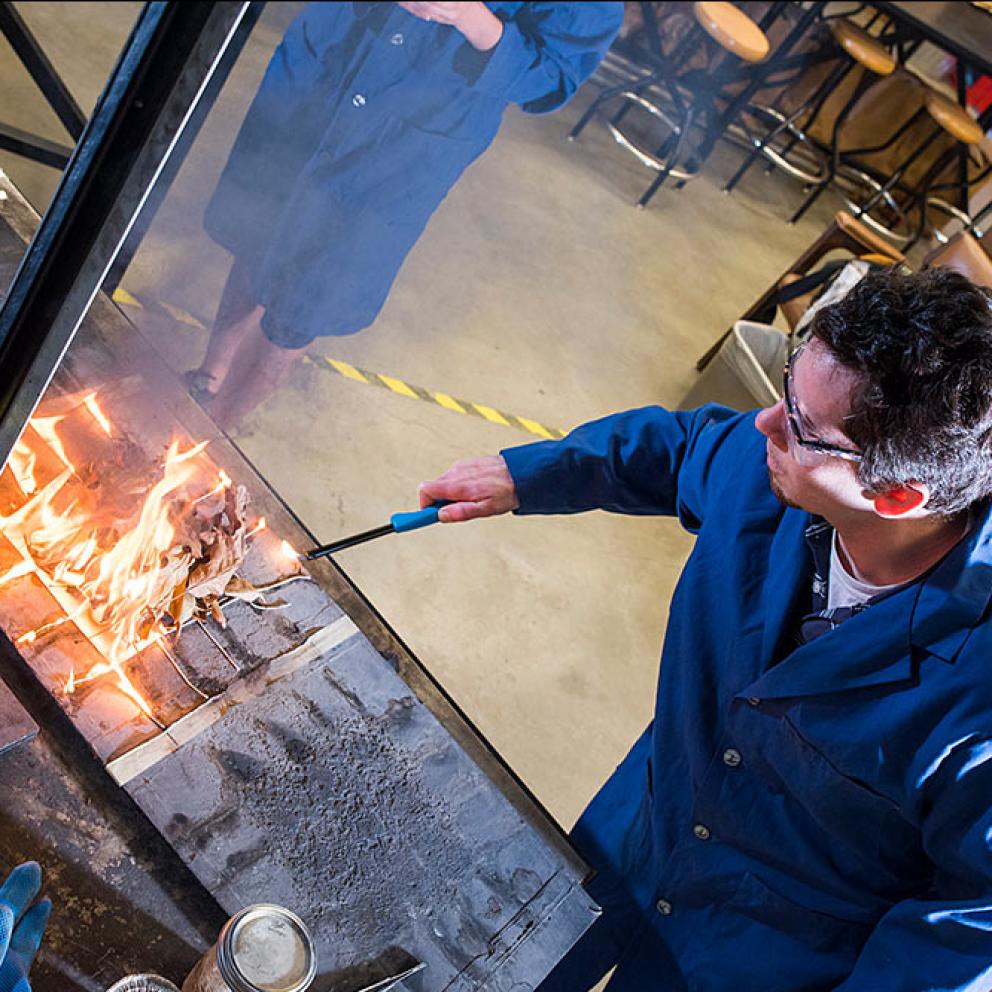
Breadcrumb
Environmental Systems, M.S.
You want to make a difference in the world? A master’s degree in Environmental Systems opens the door to making an impact on the world and its resources. The graduate program in Environmental Systems at Cal Poly Humboldt offers three options in Environmental Resources Engineering, Geology, and Energy Technology & Policy within a single graduate program.
Why this program
Environmental Systems is an interdisciplinary Master of Science program that helps students better understand and shape the complex systems that underpin our society.
Near empty beaches, mountain ranges, wild rivers, and ancient redwood forests, Cal Poly Humboldt is an ideal place to live and learn.
At Cal Poly Humboldt, we believe strongly in the power of experiential education. Students learn through coursework, hands-on projects, and field work.
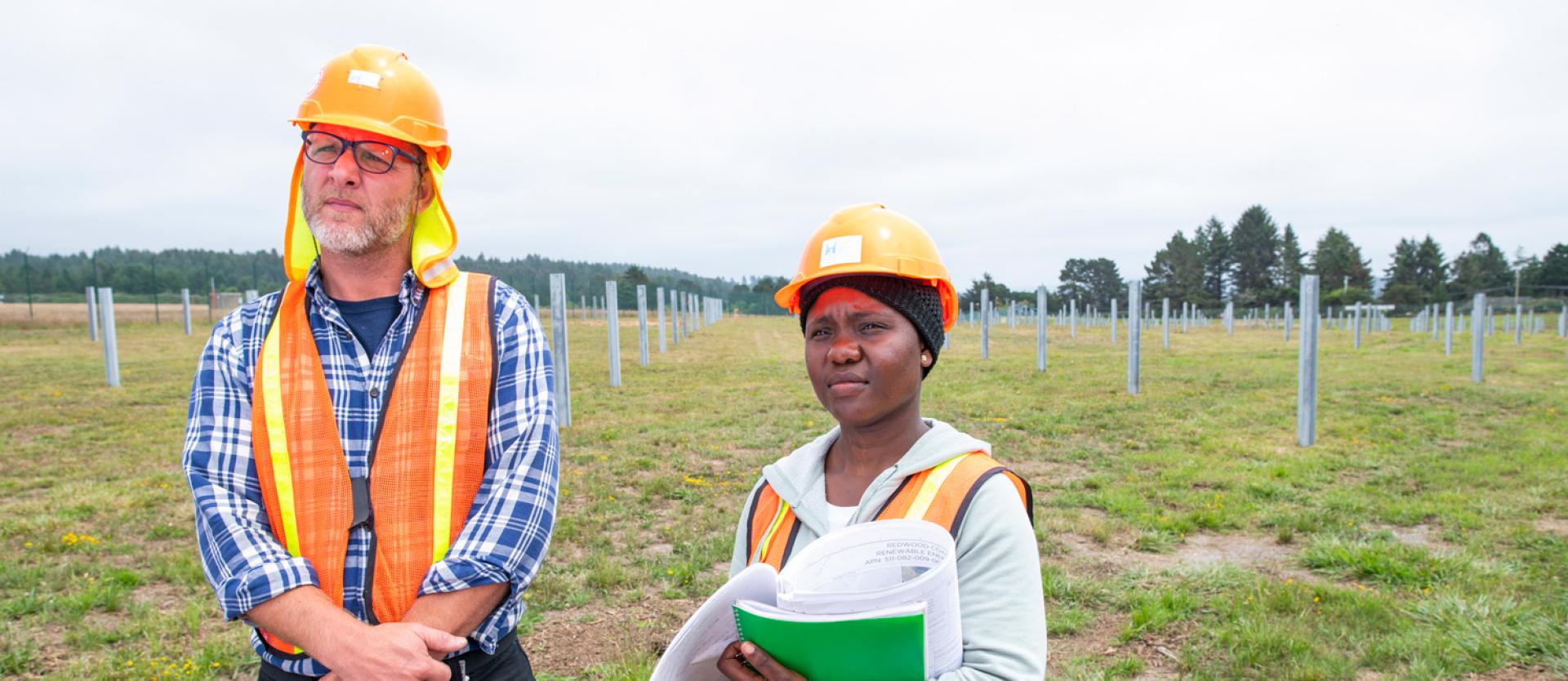
Program Options
Efforts to end world poverty and sustain a robust global economy, while simultaneously working to mitigate global climate change and other energy induced environmental issues, are among the greatest challenges of the 21st century and the focus of this option.
Emphasizes the application of engineering skills to planning, design, and management problems involving environmental resources. Three general areas of research activity are available in the program: water quality, water resources, and renewable energy resources.
Students gain expertise in subdisciplines such as glacial geology, geomorphology, volcanology, petrology, tectonics, and geochronology through faculty mentored original scientific research, extensive field opportunities in an active and diverse setting, and specialized coursework.
Did you know?
The Schatz Energy Research Center is a national leader in areas including renewable energy microgrids and off-shore wind energy. It is also involved in international work related to energy access in off-grid areas.
Faculty and students from the Environmental Resource Engineering program were involved in the original design and development of the The Arcata Marsh and Wildlife Sanctuary’s constructed wetland treatment system, and continue to play a key role in the continued optimization of the system.
The University is located along the active Cascadia subduction zone and south Cascades volcanic arc, as well as near the Six Rivers National Forest and Trinity Alps, giving student researchers unique opportunities to study diverse geologic processes.
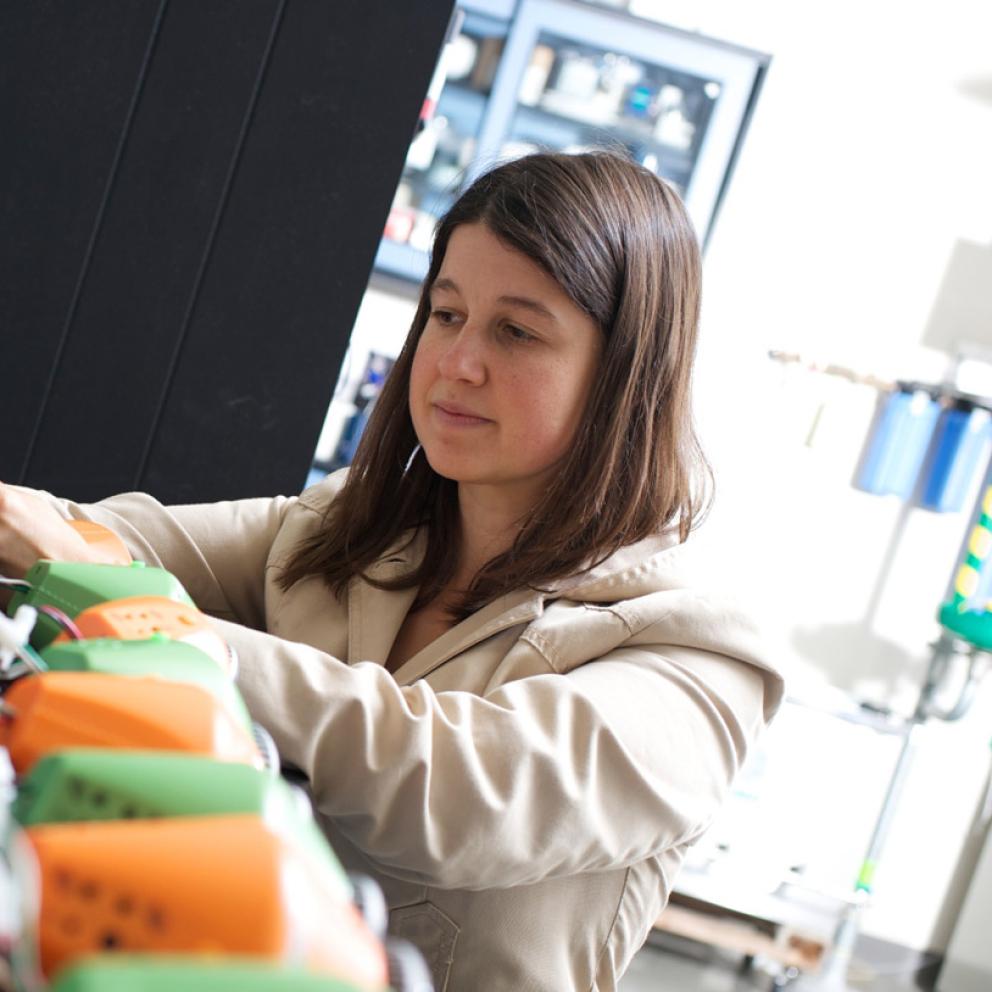
Careers
There are a variety of career opportunities for environmental systems professionals to pursue. These jobs span several specialties with a combined purpose to understand the earth and its resources, find solutions to environmental challenges, and encourage positive relationships between human-made systems and nature.
- Civil Engineer
- Energy Systems Engineer
- Energy Policy Specialist
- Environmental Consultant
- Environmental Engineer
- Geologist
- Natural Resource Specialist
- Transportation Planner
- Water and Wastewater Engineer
- Water Treatment Operator
Source: Indeed.com
- Alumni Profiles (Energy Technology & Policy)
- Alumni Profiles (Environmental Resources Engineering)
- Alumni Profiles (Geology)
